Dr Rachel Hale
Research Associate
Cardiff University
 Rachel is a Research Associate based in the School of Psychology at Cardiff University. Her background is in sociology, and science and technology studies (STS). Her research interests include how people and technologies interact, and how this affects their health and wellbeing. She has worked on several qualitative and mixed methods research projects, and specialises in ethnographic research methods.
Rachel is a Research Associate based in the School of Psychology at Cardiff University. Her background is in sociology, and science and technology studies (STS). Her research interests include how people and technologies interact, and how this affects their health and wellbeing. She has worked on several qualitative and mixed methods research projects, and specialises in ethnographic research methods.
Rachel is currently working on the Active Building Centre Research Programme exploring experiences of living well in Active or Zero Carbon Homes in and through space and time.
Dr Fiona Shirani
Research Associate
Cardiff University
 Fiona is a Research Associate based in the School of Social Sciences at Cardiff University. Her research interests include how life events and relationships to others impact everyday energy use, as well as experiences of energy vulnerability. She has worked on several qualitative longitudinal projects and specialises in this methodological approach.
Fiona is a Research Associate based in the School of Social Sciences at Cardiff University. Her research interests include how life events and relationships to others impact everyday energy use, as well as experiences of energy vulnerability. She has worked on several qualitative longitudinal projects and specialises in this methodological approach.
Fiona is currently working as a Research Associate on the Active Building Centre Research Programme exploring experiences of living in Active or Zero Carbon Homes in and through space and time. She also works on the interdisciplinary FLEXIS programme, conducting a qualitative longitudinal study in a Welsh Valleys community where an innovative district heating scheme is under development.
Gareth Simons
Research Fellow
University College London

Gareth’s role within ABC focuses on the development of 3D stock models for energy analytics and associated visualisation workflows as part of the UCL Building Stock Lab team. More broadly, Gareth specialises in computational urban analysis and spatial data science. He employs the synthesis of data, modelling, and visualisation to better understand the built environment and to engage with stakeholders in the interest of developing actionable insights. His background includes 10 years as an architect in Winnipeg, Canada, where he designed buildings for extreme winter conditions and oversaw the implementation of LEED certification.
Rob Shipman
Senior Research Fellow
University of Nottingham
R ob Shipman is a Senior Research Fellow at the University of Nottingham where his focus is on the research and development of technologies to support the current energy transition. His research activity includes the use of electric vehicle batteries to support vehicle-to-grid (V2G) and vehicle-to-building (V2B) applications, the development of smart energy communities, and demand-side response systems.
ob Shipman is a Senior Research Fellow at the University of Nottingham where his focus is on the research and development of technologies to support the current energy transition. His research activity includes the use of electric vehicle batteries to support vehicle-to-grid (V2G) and vehicle-to-building (V2B) applications, the development of smart energy communities, and demand-side response systems.
Rob developed the monitoring, IoT and cloud infrastructure for the Trent Basin development in Nottingham, which is being utilised and further developed as part of the Active Building Centre Research Programme.
Professor Philip Eames
Co-Investigator
Loughborough University

Philip Eames is Professor of Renewable Energy and Director of the Centre for Renewable Energy Systems Technology (CREST). His research focuses on various aspects of renewable energy systems, energy in buildings and thermal energy storage. Topics currently being researched include vacuum glazing design and development, building retrofit for improved energy efficiency, building integrated and concentrator photovoltaic systems, thermal energy storage and solar thermal systems.
Philip’s focus within the Active Building Centre Research Programme is looking into inter-seasonal thermochemical storage solutions and phase change materials.
Mohammad Royapoor
Senior Research Associate
Newcastle University
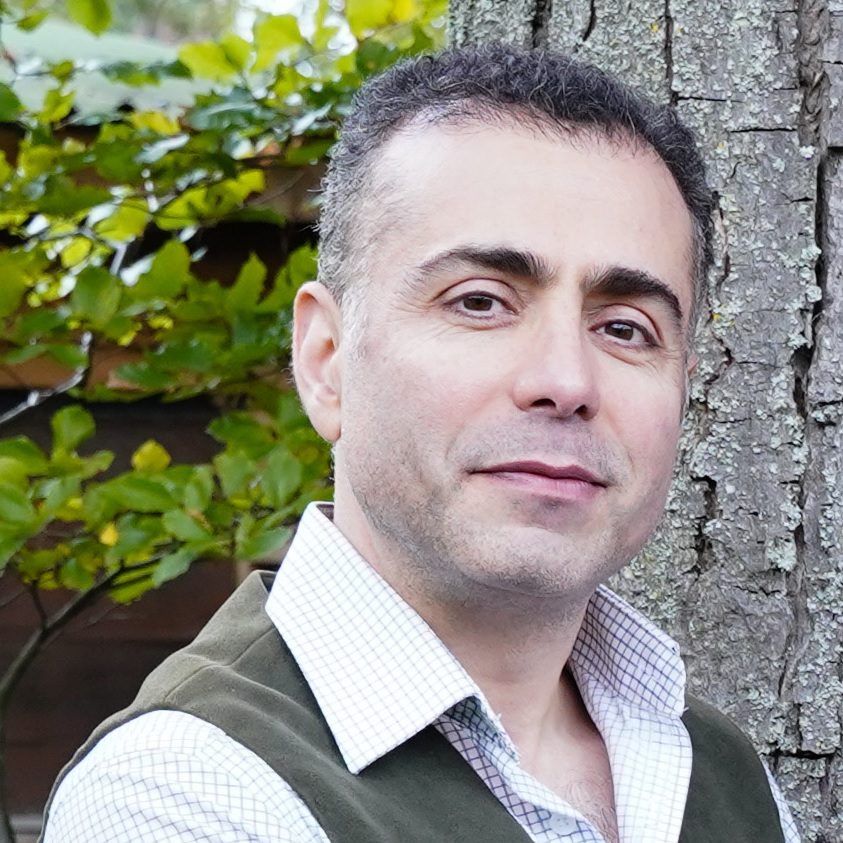
Mohammad Royapoor is a Chartered Engineer and Senior Research Associate at Newcastle University. He is currently working on 3 EPSRC funded projects that concern developing and characterising state of the art solar films and batteries in Sub-Saharan Africa, characterising the role of geothermal heat in decarbonising energy systems and conducting uncertainty analysis into building energy models.
Within the Active Building Centre Research Programme, he is collaborating on the development and validation of energy modelling tools for assessing the impact of electrification of heating on local power networks and examining the regulatory requirements of building fabric performance in the EU and its implications for active and zero carbon building concepts.
mohammad.royapoor@newcastle.ac.uk
Research Profile
Dr Adib Allahham
Researcher
Newcastle University
Adib is an established researcher with ten years experience in numerous university roles. His PhD is in control system from University of Joseph Fourier – Grenoble – France and has previous experience of working in industry and teaching in an overseas university. Adib’s research experience covers projects in the multi-vector energy systems, the electricity distribution and off-grid power sectors. This has included addressing the need for cost efficient decarbonisation of the energy sector over the next thirty years by facilitating innovative network integration of new generation and integration the different energy vectors.
Thomas Fiducia
Researcher
Loughborough University
Tom is a PhD student at the Centre for Renewable Energy Systems Technology (CREST) and a member of the PV Materials and Devices Research Group. Tom obtained his BSc in Natural Sciences (Physics, Maths and Biology) at Newcastle University. He then went on to complete an MSc in Renewable Energy Systems Technology at Loughborough before starting his PhD.
His research, which investigates micro-structural defects in thin film photovoltaic devices, is part of the Centre for Doctoral Training in New and Sustainable Photovoltaics.
Professor Lucelia Rodrigues
Co-Investigator
The University of Nottingham
 Professor Lucelia Rodrigues is the Chair in Sustainable and Resilient Cities at the Department of Architecture and Built Environment of the University of Nottingham, where her teaching has a strong focus on environmental design and sustainability. Her work has always been very cross-disciplinary, aiming to inform the sustainable practice of architecture and enhance the quality of the built environment. She is particularly interested in the resilience of communities and buildings in a changing climate and has been involved in several projects focused on different aspects of sustainability, particularly energy and comfort. She is the Director of the Transport, Mobility and Cities at Nottingham, where her main focus is on sustainability and resilience in cities, and the director of the MArch in Architecture and Sustainable Design.
Professor Lucelia Rodrigues is the Chair in Sustainable and Resilient Cities at the Department of Architecture and Built Environment of the University of Nottingham, where her teaching has a strong focus on environmental design and sustainability. Her work has always been very cross-disciplinary, aiming to inform the sustainable practice of architecture and enhance the quality of the built environment. She is particularly interested in the resilience of communities and buildings in a changing climate and has been involved in several projects focused on different aspects of sustainability, particularly energy and comfort. She is the Director of the Transport, Mobility and Cities at Nottingham, where her main focus is on sustainability and resilience in cities, and the director of the MArch in Architecture and Sustainable Design.
Lucelia has been involved in the Trent Basin development, one of the Active Building Centre Research Programme’s demonstrators, since its conception through a number of projects.
Professor John Michael Walls
Co-Investigator
Loughborough University
 Michael Walls is Professor of Photovoltaics for Power Systems in the Centre for Renewable Energy Systems Technology (CREST) at Loughborough University. CREST is part of the Wolfson School of Mechanical, Electrical and Manufacturing Engineering. He is responsible for photovoltaics device and materials research within CREST and his research focus is in thin film photovoltaics. His research focuses on coatings on glass for anti-reflection, anti-soiling and infra-red reflection.
Michael Walls is Professor of Photovoltaics for Power Systems in the Centre for Renewable Energy Systems Technology (CREST) at Loughborough University. CREST is part of the Wolfson School of Mechanical, Electrical and Manufacturing Engineering. He is responsible for photovoltaics device and materials research within CREST and his research focus is in thin film photovoltaics. His research focuses on coatings on glass for anti-reflection, anti-soiling and infra-red reflection.
Professor Martin Mayfield
Co-Investigator
The University of Sheffield
 Martin’s work aims to understand how to engineer sustainable solutions, by adopting a systemic approach to problems and identifying the leverage points in dynamic systems that allow us to create paradigm shifts in our use of energy and resources. By focusing on the role of engineering in society, Martin aims to understand the interaction between human and natural systems and, therefore, create solutions and develop our infrastructure in a manner that allows humanity to flourish. He recognises the opportunities presented by Complexity Science to improve the resilience and performance of complex adaptive systems such as future energy systems, cities and our national infrastructure.
Martin’s work aims to understand how to engineer sustainable solutions, by adopting a systemic approach to problems and identifying the leverage points in dynamic systems that allow us to create paradigm shifts in our use of energy and resources. By focusing on the role of engineering in society, Martin aims to understand the interaction between human and natural systems and, therefore, create solutions and develop our infrastructure in a manner that allows humanity to flourish. He recognises the opportunities presented by Complexity Science to improve the resilience and performance of complex adaptive systems such as future energy systems, cities and our national infrastructure.
His expertise spans a diverse array of systems engineering, sustainable design, climate change mitigation and adaptation, mission critical systems, city systems and mapping infrastructure interdependencies.
Matt Woolf
Researcher / Coordinator
Imperial College London
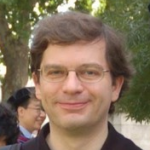 Matt has been a researcher and coordinator in the Control and Power Group, EEE Deptartment, Imperial College for 8 years. At present he is working in the area of resilience, focusing on the contribution that smart buildings can offer in making the energy system less vulnerable to rare and extreme events. Previous projects include Low Carbon London, where he worked on industrial and commercial demand side response.
Matt has been a researcher and coordinator in the Control and Power Group, EEE Deptartment, Imperial College for 8 years. At present he is working in the area of resilience, focusing on the contribution that smart buildings can offer in making the energy system less vulnerable to rare and extreme events. Previous projects include Low Carbon London, where he worked on industrial and commercial demand side response.
Dr Eldar Naghiyev
Researcher
The University of Nottingham
 Dr Eldar Naghiyev has extensive experience in applied energy management of building and community systems, including renewable energy generation, energy storage and demand response technologies. After having delivered UKRI, Horizon2020, BEIS and industry funded projects, Eldar has joined the Active Building Centre Research Programme as part of the Trent Basin demonstrator. Working together with the local ESCO, his aim is to develop a techno-economic solution which revolutionises community energy supply.
Dr Eldar Naghiyev has extensive experience in applied energy management of building and community systems, including renewable energy generation, energy storage and demand response technologies. After having delivered UKRI, Horizon2020, BEIS and industry funded projects, Eldar has joined the Active Building Centre Research Programme as part of the Trent Basin demonstrator. Working together with the local ESCO, his aim is to develop a techno-economic solution which revolutionises community energy supply.
George Bennett
Researcher
University College London
 George is a researcher in building heat focusing on heating systems and their transition to low carbon. He has 10 years experience in the heating industry across European markets and environments and his research interests span monitoring of real world heating system, dynamic modelling of heating and national stock modelling of transition scenarios.
George is a researcher in building heat focusing on heating systems and their transition to low carbon. He has 10 years experience in the heating industry across European markets and environments and his research interests span monitoring of real world heating system, dynamic modelling of heating and national stock modelling of transition scenarios.
His research on the Active Building Centre Research Programme focuses on estimating the national impact of the penetration of active buildings into the housing stock by using the Governments own National Household Model (NHM) based on the Standard Assessment Procedure (SAP) which also forms the basis of Energy Performance Certificates (EPC).
Dr Renata Tubelo
Researcher
The University of Nottingham
 Dr Renata Tubelo is a Research Fellow in the Department of Architecture and Built Environment at the University of Nottingham (UoN). Renata is particularly interested in thermal comfort and energy efficiency at building levels. She has expertise in building modelling and has been involved a series of cross-disciplinary research projects with both international and national research partners focused on sustainability, energy efficiency and urban regeneration.
Dr Renata Tubelo is a Research Fellow in the Department of Architecture and Built Environment at the University of Nottingham (UoN). Renata is particularly interested in thermal comfort and energy efficiency at building levels. She has expertise in building modelling and has been involved a series of cross-disciplinary research projects with both international and national research partners focused on sustainability, energy efficiency and urban regeneration.
Dominic Humphrey
Researcher
University College London
 Research Fellow building stock, retrofit Senior Architect
Research Fellow building stock, retrofit Senior Architect
Hadi Arbabi
Researcher
The University of Sheffield
 Hadi’s work and research interests sit at the interface of data-driven urban engineering and planning. His previous research focused on providing new insights on the effects of spatial scale on urban economic performance balance and the extent to which it is influenced by mobility infrastructure across spatial scales. As a work package leader on the Active Building Centre Research Programme, his current research focuses on scalable approaches to building retrofit. Hadi’s broader research activity and interests include but are not limited to urban stocks and metabolism, network analysis of intra- and inter-city urban flows, infrastructure and planning, and city morphology.
Hadi’s work and research interests sit at the interface of data-driven urban engineering and planning. His previous research focused on providing new insights on the effects of spatial scale on urban economic performance balance and the extent to which it is influenced by mobility infrastructure across spatial scales. As a work package leader on the Active Building Centre Research Programme, his current research focuses on scalable approaches to building retrofit. Hadi’s broader research activity and interests include but are not limited to urban stocks and metabolism, network analysis of intra- and inter-city urban flows, infrastructure and planning, and city morphology.
Professor Matt Jones
Co-Investigator
Swansea University
 Matt Jones is the author of two books and many research articles that have helped shape the field of Mobile HCI and UX (Mobile Interaction Design – with Gary Marsden; and There’s Not an App for That – with Simon Robinson and Gary Marsden).
Matt Jones is the author of two books and many research articles that have helped shape the field of Mobile HCI and UX (Mobile Interaction Design – with Gary Marsden; and There’s Not an App for That – with Simon Robinson and Gary Marsden).
He has spoken at events with both an arts focus (such as the Hay Book Festival 2017) and the sciences (such as this the British Science Festival 2016 and Interact 2017). He has worked both with academic research groups and industrial partners across the world. His work combines a passion for invention with a commitment to working alongside non-traditional users of mobile technology.
Dr Danielle Densley Tingley
Co-Investigator
The University of Sheffield
 Danielle is passionate about reducing the impact of the built environment on the planet, particularly focusing on how our use of materials can reduce greenhouse gas emissions, and thus minimise climate change. Her research looks into both the materials used in creating structures, and the design of structures.
Danielle is passionate about reducing the impact of the built environment on the planet, particularly focusing on how our use of materials can reduce greenhouse gas emissions, and thus minimise climate change. Her research looks into both the materials used in creating structures, and the design of structures.
She takes a multi-disciplinary, multi-scale approach to tackle this problem, working with colleagues from the Departments of Materials Science, Geography, Architecture, Urban Planning, Computer Science, and Automatic Control and Systems Engineering on a diverse range of projects, from investigating public perception of low-carbon materials, to understanding resource in informal settlements, through to her work as a Director of the Urban Flows Observatory.
Professor Mark Gillott
Co-Investigator
The University of Nottingham
 Mark Gillott, Professor of Sustainable Building Design, has over 23 years’ experience in low carbon sustainable energy technologies and sustainable building design. He is the research and project manager for the multi-award winning Creative Energy Homes (CEH) low/zero carbon housing project which incorporates a low temperature heat network and an electricity micro-grid.
Mark Gillott, Professor of Sustainable Building Design, has over 23 years’ experience in low carbon sustainable energy technologies and sustainable building design. He is the research and project manager for the multi-award winning Creative Energy Homes (CEH) low/zero carbon housing project which incorporates a low temperature heat network and an electricity micro-grid.
He was the lead academic on the Innovate UK £6 million project SCENe and is project managing the £3 million UK Energy Research Accelerator Community Energy Demonstrator at the £180 million Nottingham Trent Basin sustainable housing development of low carbon homes.
The research undertaken at CEH and ongoing at the Trent Basin Community Energy Demonstrator is informing data acquisition, analysis and modelling work packages as well as developing new energy management systems and business models incorporating behind the meter billing.
Professor Tadj Oreszczyn
Co-Investigator
University College London
 Tadj has, for 34 years, undertaken energy and building research with a particular focus around the performance gap between theory and practice and the unintended consequences (health, comfort, etc.) of building energy efficiency. His first degree was in Applied Physics followed by a PhD in Solar Energy. Tadj has been involved in over 200 research publications. He was invited to give evidence to the House of Lords Science and Technology Select Committee on Energy Efficiency, co-author two papers for the special issues of the Lancet on Energy and Health and prepare three papers for a State of Science Review for the Office of Science and Innovation. Tadj has provided research support for the development of the English and Welsh Building Regulations. He has presented at invited public and academic lectures at the Royal Society and the Royal Institution.
Tadj has, for 34 years, undertaken energy and building research with a particular focus around the performance gap between theory and practice and the unintended consequences (health, comfort, etc.) of building energy efficiency. His first degree was in Applied Physics followed by a PhD in Solar Energy. Tadj has been involved in over 200 research publications. He was invited to give evidence to the House of Lords Science and Technology Select Committee on Energy Efficiency, co-author two papers for the special issues of the Lancet on Energy and Health and prepare three papers for a State of Science Review for the Office of Science and Innovation. Tadj has provided research support for the development of the English and Welsh Building Regulations. He has presented at invited public and academic lectures at the Royal Society and the Royal Institution.
Dr Joachim Geske
Researcher
Imperial College London
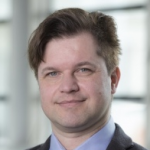 Dr. Joachim Geske is an energy economist. He entered his current position at the Department of Management at Imperial College Business School, Imperial College London, in September 2015.
Dr. Joachim Geske is an energy economist. He entered his current position at the Department of Management at Imperial College Business School, Imperial College London, in September 2015.
His research interests are the economic analysis of energy systems, ranging from applied numerical analyses to current topics in energy policy.
He contributes to the Active Building Centre Research Programme with economic analyses of business models.
Professor Richard Green
Co-Investigator
Imperial College London
 Professor Richard Green is an economist who has been studying electricity markets (in Great Britain and abroad) for over 30 years. Recently, the focus of his work has been on the economics and implications of low-carbon electricity generation for prices and investment incentives. He is studying the possible business models for Active Buildings as part of the Active Building Centre Research Programme.
Professor Richard Green is an economist who has been studying electricity markets (in Great Britain and abroad) for over 30 years. Recently, the focus of his work has been on the economics and implications of low-carbon electricity generation for prices and investment incentives. He is studying the possible business models for Active Buildings as part of the Active Building Centre Research Programme.
Lascelle Mauricette
Researchers PhD
Imperial College London
Lascelle Mauricette started his PhD at Imperial College London in 2018 and has since focused his research on multi-vector energy system modelling and optimisation. His contribution to the Active Building Centre Research Programme is in assessing how active buildings interact with, and can benefit, multi-vector energy microgrids, particularly regarding resilience against high-impact, low frequency events.
Professor Goran Strbac
Co-Investigator
Imperial College London
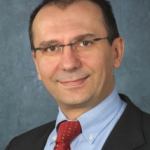 Goran Strbac is a Professor of Energy Systems, with extensive experience in advanced modelling and analysis of operation, planning, security and economics of energy systems.
Goran Strbac is a Professor of Energy Systems, with extensive experience in advanced modelling and analysis of operation, planning, security and economics of energy systems.
He led the development of novel advanced analysis approaches and methodologies that have been extensively used to inform industry, governments and regulatory bodies abut the role and value of emerging new technologies and systems in supporting cost effective evolution to smart low carbon energy future
Richard Johnson
Researcher
The University of Sheffield
 Richard has a background in the optimisation of low carbon technology placement and operation from a distribution network perspective, and physical modelling of domestic heating systems.
Richard has a background in the optimisation of low carbon technology placement and operation from a distribution network perspective, and physical modelling of domestic heating systems.
His research for the Active Building Centre Research Programme has so far resulted in the production of a rapid ASHP/GSHP based electrified heating profile generator for use with all types of domestic buildings, with in built capabilities to test user defined control strategies. Through collaboration with the rest of the WP10 team, he intends to develop this model to examine more complex heating control strategies, to explore the effects of scaling outputs on demand diversity, and to quantify the effects of these strategies on distribution network function.
Meltem Peker
Researcher
Newcastle University
 Meltem received her PhD from the Department of Industrial Engineering at Bilkent University in 2019 and joined the School of Engineering at Newcastle University as a research associate. Her research interests are modelling power systems and network operations. Currently, she is working on analysing the benefits of active buildings at local scale and flexibility services that active buildings can provide to the network.
Meltem received her PhD from the Department of Industrial Engineering at Bilkent University in 2019 and joined the School of Engineering at Newcastle University as a research associate. Her research interests are modelling power systems and network operations. Currently, she is working on analysing the benefits of active buildings at local scale and flexibility services that active buildings can provide to the network.
Dr Xi Zhang
Researcher
Imperial College London
 Dr Xi Zhang received a PhD degree in Imperial College London in 2019. His research area includes whole-energy system planning, multi-vector energy system modelling and energy systems optimization. For the Active Building Centre Research Programme, he is focusing on the whole-system assessment of the benefits of active buildings, particularly the modelling of flexible heat demand in a large population of residential buildings.
Dr Xi Zhang received a PhD degree in Imperial College London in 2019. His research area includes whole-energy system planning, multi-vector energy system modelling and energy systems optimization. For the Active Building Centre Research Programme, he is focusing on the whole-system assessment of the benefits of active buildings, particularly the modelling of flexible heat demand in a large population of residential buildings.
Dr D Pudjianto
Researcher
Imperial College London
 Dr Danny Pudjianto (Research Co-I) is a Research Fellow at Imperial College London with expertise in energy system modelling and optimization, energy economics, and evaluations of the benefits of emerging technologies such as smart grids, active network management, demand response, distributed generation, energy storage, and energy networks.
Dr Danny Pudjianto (Research Co-I) is a Research Fellow at Imperial College London with expertise in energy system modelling and optimization, energy economics, and evaluations of the benefits of emerging technologies such as smart grids, active network management, demand response, distributed generation, energy storage, and energy networks.
His selected key project involvements include: (i) Analysis of Alternative UK Heat Decarbonisation Pathways (for CCC in 2018), (ii) Strategic Assessment of the Role and Value of Energy Storage Systems in the UK Low Carbon Energy Future (for Carbon Trust), (iii) EU H2020 IndustRE where the benefits of industrial demand flexibility on the European electricity system were quantified and (iv) EU ene.field project where the benefits of deploying fuel-cell micro CHP were quantified and analysed. He is a senior member of IEEE and has published more than 80 technical papers and 70 industrial/research reports.
Dr Spyros Giannelos
Researcher
Imperial College London
 Spyros Giannelos is a Research Associate at Imperial College London. He obtained a PhD from Imperial College London on mathematical optimization with focus on stochastic optimization, modelling of smart grid technologies and of different types of uncertainty such as exogenous and
Spyros Giannelos is a Research Associate at Imperial College London. He obtained a PhD from Imperial College London on mathematical optimization with focus on stochastic optimization, modelling of smart grid technologies and of different types of uncertainty such as exogenous and
endogenous types of uncertainty.
His key research interests focus on electricity distribution, investment planning and operation under uncertainty, development of decomposition methodologies and the definition and evaluation of option value. He has published articles in Journals and conference papers.
Professor Daniel Coca
Co-Investigator
The University of Sheffield
 Daniel Coca is Professor of Nonlinear and Complex Systems and Head of Department of the Automatic Control and Systems Engineering at the University of Sheffield. He leads the Centre for Signal Processing and Complex Systems.
Daniel Coca is Professor of Nonlinear and Complex Systems and Head of Department of the Automatic Control and Systems Engineering at the University of Sheffield. He leads the Centre for Signal Processing and Complex Systems.
He is Co-Director of the Sheffield Urban Flows Observatory and member of the governing board of the Data and Analytics Facility for National Infrastructure (DAFNI), which are national research facilities funded by EPSRC under the UK Collaboratorium for Research in Infrastructure & Cities (UKCRIC) partnership.
Dr Sara Walker
Co-Investigator
Newcastle University
 Dr Walker has over 20 years of experience in academia and industry, working in the fields of energy efficiency and renewable energy. More recently she has led a number of large research projects, as well as having leadership responsibility within the organisation. At present Dr Walker is Director of the Newcastle University Centre for Energy, Director for the National Centre for Energy Systems Integration, and Deputy Director for the Supergen Energy Networks Hub. Her research has a focus on renewable energy and energy efficiency in buildings, energy policy, energy resilience, and whole energy systems.
Dr Walker has over 20 years of experience in academia and industry, working in the fields of energy efficiency and renewable energy. More recently she has led a number of large research projects, as well as having leadership responsibility within the organisation. At present Dr Walker is Director of the Newcastle University Centre for Energy, Director for the National Centre for Energy Systems Integration, and Deputy Director for the Supergen Energy Networks Hub. Her research has a focus on renewable energy and energy efficiency in buildings, energy policy, energy resilience, and whole energy systems.
Dr Walker is the Deputy Director for the Active Building Centre Research Programme. She is investigating, with colleagues, the impact of active buildings on energy networks and what new services and products may be possible if we think of buildings differently.
Myriam Neaimeh
Researcher
Newcastle University
 Myriam Neaimeh is a Senior Research Associate at Newcastle University and Group Leader for the Data-Centric Engineering programme at the Turing Institute.
Myriam Neaimeh is a Senior Research Associate at Newcastle University and Group Leader for the Data-Centric Engineering programme at the Turing Institute.
Myriam’s work include applying data science methods and tools to help modernise electricity and transportation infrastructure. For the Active Building Centre Research Programme, she is contributing to the development of electric vehicle charging infrastructure which is user-centric, cost-efficient, secure, and synergistic with the operation of the electricity system.
Carol Maddock
Researcher
Swansea University
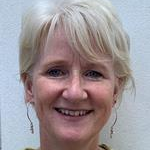 Carol is a research officer based in the Centre for Innovative Ageing (CIA) and is currently working on the Active Building Centre Research Programme to examine the impact of Active Builds on older people.
Carol is a research officer based in the Centre for Innovative Ageing (CIA) and is currently working on the Active Building Centre Research Programme to examine the impact of Active Builds on older people.
The programme aims to understand older people’s motives and the decision-making processes around moving to an ‘active’ home. Carol has a particular interest in public involvement and engagement in the research process which is central to the research programme. She will be working with older people to devise and conduct the research.
Carol retains an active role in the SUNRISE project (Strategic University Network to Revolutionize International Solar Energy and was involved in piloting arts based approaches to involvement and engagement in India as part of her role within the Centre for Ageing and Dementia Research (CADR) Cymru.
Deborah Morgan
Researcher
Swansea University
 Deborah is a senior researcher in the Centre for Innovative Ageing at Swansea University and has a background in social gerontology, sociology and health and social care. Deborah’s PhD focused on transitions in loneliness and social isolation in later life. Her research interests include older adults, loneliness and social isolation health/social inequalities, disability and chronic illness, and new ageing populations. Deborah has previously worked on projects related to housing adaptations and Motability.
Deborah is a senior researcher in the Centre for Innovative Ageing at Swansea University and has a background in social gerontology, sociology and health and social care. Deborah’s PhD focused on transitions in loneliness and social isolation in later life. Her research interests include older adults, loneliness and social isolation health/social inequalities, disability and chronic illness, and new ageing populations. Deborah has previously worked on projects related to housing adaptations and Motability.
Dr Kate O’Sullivan
Researcher
Cardiff University
 Kate’s research interests focus on the interplay between environmental, spatial and energy justice – how the sustainable and equitable use of natural resources is influenced by various economic, political and socio-spatial structures and how this manifests geographically. Research in this area is increasingly important as decarbonisation progresses and opportunities are presented that enable emerging systems and structures become more just. Her PhD research (2015-20) has highlighted the connections between political power, recognition, socio-economic development and the distribution of costs and benefits emerging from low carbon transition.
Kate’s research interests focus on the interplay between environmental, spatial and energy justice – how the sustainable and equitable use of natural resources is influenced by various economic, political and socio-spatial structures and how this manifests geographically. Research in this area is increasingly important as decarbonisation progresses and opportunities are presented that enable emerging systems and structures become more just. Her PhD research (2015-20) has highlighted the connections between political power, recognition, socio-economic development and the distribution of costs and benefits emerging from low carbon transition.
Kate is currently working as a Research Associate on the Active Building Centre Research Programme exploring variegated experiences of living in Active or Zero Carbon Homes in and through space and time.
Dr Charles Musselwhite
Co-Investigator
Swansea University
 Charles is Associate Professor in Gerontology at the Centre for Innovative Ageing (CIA) at Swansea University. He has a particular interest in improving public policy and practice around the built environment and transportation taking into account an ageing population, requiring sustainable and environmental contexts, including road user safety in later life, giving-up driving and creating age friendly neighbourhoods and communities.
Charles is Associate Professor in Gerontology at the Centre for Innovative Ageing (CIA) at Swansea University. He has a particular interest in improving public policy and practice around the built environment and transportation taking into account an ageing population, requiring sustainable and environmental contexts, including road user safety in later life, giving-up driving and creating age friendly neighbourhoods and communities.
Charles has worked on 36 projects as PI or Co-I totalling over £14m research income. He has authored 38 peer reviewed journal articles, 18 book chapters and have 4 books on these topics. He also manages the delivery of socio-economic studies of low-carbon homes for Active Building Centre Research Programme.
Professor Karen Henwood
Co-Investigator
Cardiff University
 Karen Henwood is a Professor in Cardiff University’s School of Social Sciences and its Understanding Risk Research Group. She works on how it is possible for people to meet the challenges posed to themselves and society by the dynamics of environmental risk and socio-cultural change, including infrastructure and technology transitions in energy systems.
Karen Henwood is a Professor in Cardiff University’s School of Social Sciences and its Understanding Risk Research Group. She works on how it is possible for people to meet the challenges posed to themselves and society by the dynamics of environmental risk and socio-cultural change, including infrastructure and technology transitions in energy systems.
Currently, in addition to work on the Active Building Centre Research Programme, Karen is a Co-Investigator on two social science and engineering/built environment projects: FLEXIS and NEUPA. The Flexis (Flexible Integrated Energy Systems) project is researching local community engagement with energy system change in South Wales; one of its work packages (on ‘energy system change and everyday life’) highlights questions about the lived experiences and dynamics of vulnerability. NEUPA (2020-2023) is an EPSRC study of network upgrade, local disruption, and heat decarbonisation.
Professor Nick Pidgeon
Co-Investigator
Cardiff University
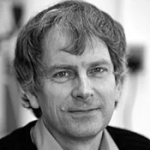 Professor Nick Pidgeon is Director of the Understanding Risk Research Group within the School of Psychology at Cardiff University. His research looks at public attitudes, risk perception and public engagement with environmental risks and energy technologies and infrastructures.
Professor Nick Pidgeon is Director of the Understanding Risk Research Group within the School of Psychology at Cardiff University. His research looks at public attitudes, risk perception and public engagement with environmental risks and energy technologies and infrastructures.
He is Co-Investigator on the Flexible Integrated Energy Systems (FLEXIS) Project, researching community engagement with energy system change in South Wales. Nick was awarded an Honorary Fellowship of the British Science Association in 2011 and an MBE in the 2014 Queen’s Birthday Honours for services to UK climate change awareness and energy security policy. He was Co-investigator on the ESRC Energy Biographies project. He is currently a member of the UK Department for Transport Science Advisory Council.
Dr Oktay Cetinkaya
Researcher
The University of Sheffield
 Dr. Oktay Cetinkaya received his B.Eng. degrees (Hons.) with a double major in Electrical Engineering and Electronics and Communication Engineering from Yildiz Technical University, Istanbul, Turkey, in 2013 and 2014, respectively. He then started pursuing a Ph.D. degree in Electrical and Electronics Engineering at Koc University, Istanbul, Turkey, and was awarded in early 2018.
Dr. Oktay Cetinkaya received his B.Eng. degrees (Hons.) with a double major in Electrical Engineering and Electronics and Communication Engineering from Yildiz Technical University, Istanbul, Turkey, in 2013 and 2014, respectively. He then started pursuing a Ph.D. degree in Electrical and Electronics Engineering at Koc University, Istanbul, Turkey, and was awarded in early 2018.
He worked as a Research Fellow at the University of Southampton, the UK, between 2018 and 2020. Since April 2020, he is a Research Associate at The University of Sheffield, the UK. His research interests broadly cover energy harvesting-aided wireless-powered communications for the Internet of Things, on which he has authored around 25 scientific papers that have been published in highly-respected journals, top-tier conference proceedings, and towering book series.
Dr Zoya Pourmirza
Researcher
Newcastle University
 Dr. Zoya Pourmirza works with the Active Building Centre Research Programme (ABC-RP) and National Centre for Energy Systems Integration (CESI), investigating the design and development of Information and Communication (ICT) architecture for smart energy networks with the focus on data communication efficiency and cyber-security issues related to energy systems.
Dr. Zoya Pourmirza works with the Active Building Centre Research Programme (ABC-RP) and National Centre for Energy Systems Integration (CESI), investigating the design and development of Information and Communication (ICT) architecture for smart energy networks with the focus on data communication efficiency and cyber-security issues related to energy systems.
She also been involved in the UKRI Research and Innovation Infrastructure Roadmap (RIIR) project as a lead researcher where she identified the current landscape and future key RIIs in Energy sector in the UK in order to inform policy makers to meet the UK Government 2050 carbon targets.
Dr Pourmirza has been the PI of the mini project entitled Heat as a service: Benefits, barriers, and evidence needs project funded by UKERC through a two-stage competitive process. She is also policy advisor for Department for Transport (DfT) working on cybersecurity framework for Electric Vehicle (EV) chargepoints, to inform policy and relevant standards and regulatory approaches.
Walter Arthur Bassage
Researcher
The University of Sheffield
 Walter is a cybersecurity research assistant working with Prof. John Clark on cybersecurity threats focusing on Active buildings and IoT devices respectively. He has an Msc in Cybersecurity and AI, and a BEng degree in Software Engineering. Walter has previously worked as a member of a DevOps team working at Hewlett Packard Enterprise focusing on the development of new data analysis tools and the improvement of active legacy code.
Walter is a cybersecurity research assistant working with Prof. John Clark on cybersecurity threats focusing on Active buildings and IoT devices respectively. He has an Msc in Cybersecurity and AI, and a BEng degree in Software Engineering. Walter has previously worked as a member of a DevOps team working at Hewlett Packard Enterprise focusing on the development of new data analysis tools and the improvement of active legacy code.
As a part of his work with the Active Building Centre Research Programme he is currently developing an active building model which can be used to test IoT devices on a small scale environment. In addition to the model he is in the process of completing a custom smart lighting system that can be used within an active building to allow for adaptive control to suit the environment and predetermined factors.
Steve Jubb
Researcher
The University of Sheffield
 Steve is the Chief Technical Officer for the Urban Flows observatory at The University of Sheffield. He is responsible for delivering the platform of systems that will enable the observatory to gather, process and present the data streams needed to inform the observatory’s and associated research projects. He is currently studying for a PhD, developing a detailed understanding of the way in which wireless technologies supporting Wi-Fi, Internet of Things (IoT) and Cellular networks behave in urban environments. It is intended that this will lead to the better use of, what are becoming, crowded portions of spectra thus enabling reliable support of critical infrastructure.
Steve is the Chief Technical Officer for the Urban Flows observatory at The University of Sheffield. He is responsible for delivering the platform of systems that will enable the observatory to gather, process and present the data streams needed to inform the observatory’s and associated research projects. He is currently studying for a PhD, developing a detailed understanding of the way in which wireless technologies supporting Wi-Fi, Internet of Things (IoT) and Cellular networks behave in urban environments. It is intended that this will lead to the better use of, what are becoming, crowded portions of spectra thus enabling reliable support of critical infrastructure.
Dr Ricardo Czekster
Researcher
Newcastle University
 Ricardo M. Czekster works at Newcastle University in modelling and co-simulation of cyber-physical security incidents in Active Buildings. His PhD dealt with modelling and solution of structured Markovian based approaches with applications in parallel and distributed systems. He is interested on modelling adversaries in power and telecommunication networks and their intersection with cybersecurity combining techniques and methodologies as diverse as risk assessments, threat modelling, and intrusion detection.
Ricardo M. Czekster works at Newcastle University in modelling and co-simulation of cyber-physical security incidents in Active Buildings. His PhD dealt with modelling and solution of structured Markovian based approaches with applications in parallel and distributed systems. He is interested on modelling adversaries in power and telecommunication networks and their intersection with cybersecurity combining techniques and methodologies as diverse as risk assessments, threat modelling, and intrusion detection.
Dr Mehdi Pazhoohesh
Researcher
Newcastle University
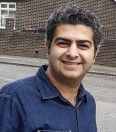 Dr Mehdi Pazhoohesh has a background in the field of building energy and human comfort science and currently works as research associate within the National Canter for Energy System Integration (CESI) at Newcastle University.
Dr Mehdi Pazhoohesh has a background in the field of building energy and human comfort science and currently works as research associate within the National Canter for Energy System Integration (CESI) at Newcastle University.
Most recent duties involved providing guidance, instruction, and leadership to the Active Building Centre Research Programme team on data curing, focussing on machine learning and AI techniques to address partial data sets and missing data imputation under big data analytics of building energy.
Dr Rabah Boukhanouf
Co-Investigator
The University of Nottingham
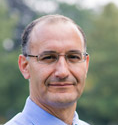 Dr Rabah Boukhanouf’s research and teaching experience span the field of energy efficient and sustainable technologies with a particular focus on applications in the built environment. He joined the University of Nottingham as a Research Fellow and worked on a number of research projects funded by industry and government research councils. These include design, simulation and testing thermal performance of passive and active heating and cooling systems including co- and tri-generation systems, adsorption and absorption systems, evaporative cooling systems, heat pumps, and other advanced heat transfer enabling technologies.
Dr Rabah Boukhanouf’s research and teaching experience span the field of energy efficient and sustainable technologies with a particular focus on applications in the built environment. He joined the University of Nottingham as a Research Fellow and worked on a number of research projects funded by industry and government research councils. These include design, simulation and testing thermal performance of passive and active heating and cooling systems including co- and tri-generation systems, adsorption and absorption systems, evaporative cooling systems, heat pumps, and other advanced heat transfer enabling technologies.
His current research focus includes Low temperature Heat Network, Passive cooling and heating systems and heat conversion processes. He has supervised over 20 PhD theses and published extensively in a number of Journals and conferences.
Dr Haris Charalampos Patsios
Co-Investigator
Newcastle University

Dr Haris Patsios is a Senior Lecturer in Power Systems with a significant experience in the design, modelling and control of power systems including renewables. He is a Co-director and WP leader for the Supergen Energy Storage Network , and Work Package Leader for the £5m EPSRC’s National Centre for Energy Systems Integration (CESI). He is also a co-investigator in relevant projects such as the £5m EPSRC project ‘Multi-scale ANalysis for Facilities for Energy Storage’ (EP/N032888/1) linking energy storage facilities across the UK.
Dr Patsios’s research focuses on the development of integrated models and control techniques for energy storage as well as decentralized control in future power networks, working closely with UK industry and academia.
Dr Charles Morisset
Co-Investigator
Newcastle University
 Dr Charles Morisset is Senior Lecturer in Security and Director of Postgraduate Studies at Newcastle University. He is Co-I on the Active Building Centre Research Programme and the e4future Vehicle-to-Grid Demonstrator, investigating smart and active infrastructure security. His research on the Active Building Centre Research Programme WP8 focuses on systems for the simulation and the management of security incidents, investigating the vulnerabilities of smart and active building and designing suitable security solutions.
Dr Charles Morisset is Senior Lecturer in Security and Director of Postgraduate Studies at Newcastle University. He is Co-I on the Active Building Centre Research Programme and the e4future Vehicle-to-Grid Demonstrator, investigating smart and active infrastructure security. His research on the Active Building Centre Research Programme WP8 focuses on systems for the simulation and the management of security incidents, investigating the vulnerabilities of smart and active building and designing suitable security solutions.
Professor Aad van Moorsel
Co-Investigator
Newcastle University

Aad van Moorsel is a Professor specialising in Cyber Security. His group conducts research in security, privacy and trust. Almost all of the group’s research contains elements of quantification, be it through system measurement, predictive modelling or on-line adaptation.
Aad is also the lead for Newcastle University in the Institute of Coding, a scheme offering postgraduate degree apprenticeships and various CPD courses to improve digital skills.
He worked in industry from 1996 until 2003, first as a researcher at Bell Labs/Lucent Technologies in Murray Hill and then as a research manager at Hewlett-Packard Labs in Palo Alto, both in the United States.
Professor John Clark
Co-Investigator
The University of Sheffield
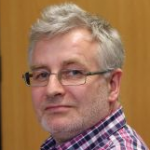 John Clark is Professor of Computer and Information Security at the University of Sheffield since April 2017 and leads the Security of Advanced Systems Research Group. His major research interests lie in cybersecurity and software engineering, most notably the use of Artificial Intelligence to these areas. Current work for the Active Building Centre Research Programme addresses the automated discovery of classical cryptanalytic strategies, intrusion detection, and the search for quantum approaches to cryptanalysis via evolutionary computation.
John Clark is Professor of Computer and Information Security at the University of Sheffield since April 2017 and leads the Security of Advanced Systems Research Group. His major research interests lie in cybersecurity and software engineering, most notably the use of Artificial Intelligence to these areas. Current work for the Active Building Centre Research Programme addresses the automated discovery of classical cryptanalytic strategies, intrusion detection, and the search for quantum approaches to cryptanalysis via evolutionary computation.
Matt Roberts
Researcher PhD
University of Bath
 Matt is a PhD researcher at the University of Bath. Matt is analysing the building design process to see how Life Cycle Assessment (LCA) can be used to better support early-stage design decisions and facilitate the design of net-zero carbon buildings. In addition to analysing the design process, Matt is carrying out LCAs of buildings that use deconstructable and off-site construction techniques as well as biogenic materials as these are viable means of reducing the environmental impacts of the built environment. Within the Active Building Centre Research Programme, Matt is using his expertise to highlight the importance of embodied impacts.
Matt is a PhD researcher at the University of Bath. Matt is analysing the building design process to see how Life Cycle Assessment (LCA) can be used to better support early-stage design decisions and facilitate the design of net-zero carbon buildings. In addition to analysing the design process, Matt is carrying out LCAs of buildings that use deconstructable and off-site construction techniques as well as biogenic materials as these are viable means of reducing the environmental impacts of the built environment. Within the Active Building Centre Research Programme, Matt is using his expertise to highlight the importance of embodied impacts.
Stephen Watson
Researcher
Loughborough University
 Stephen Watson is a Research Associate at Loughborough University whose academic career has focused on modelled heat pump electricity demand and analysis of monitored energy demand data. Within the Active Building Centre Research Programme he is focusing on predicting demands of domestic buildings, and is developing a new method based on monitored data.
Stephen Watson is a Research Associate at Loughborough University whose academic career has focused on modelled heat pump electricity demand and analysis of monitored energy demand data. Within the Active Building Centre Research Programme he is focusing on predicting demands of domestic buildings, and is developing a new method based on monitored data.
Elli Nikolaidou
Researcher
University of Bath
 Elli Nikolaidou is a Research Associate in the Department of Architecture and Civil Engineering at the University of Bath. She is a Registered Architect, holding a Bachelor’s and Master’s degree in Architectural Engineering and a PhD in Robust Building Design Optimization. Her work with the Active Building Centre Research Programme is on delivering tools for qualifying the holistic delivery of active buildings.
Elli Nikolaidou is a Research Associate in the Department of Architecture and Civil Engineering at the University of Bath. She is a Registered Architect, holding a Bachelor’s and Master’s degree in Architectural Engineering and a PhD in Robust Building Design Optimization. Her work with the Active Building Centre Research Programme is on delivering tools for qualifying the holistic delivery of active buildings.
Daniel Fosas
Researcher
University of Bath
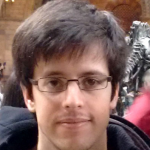 Dr Daniel Fosas is a researcher at the University of Bath. Daniel’s research focuses on low-carbon buildings that promote healthy environments. He is passionate about simulation, coding, analysis methods and teaching.
Dr Daniel Fosas is a researcher at the University of Bath. Daniel’s research focuses on low-carbon buildings that promote healthy environments. He is passionate about simulation, coding, analysis methods and teaching.
Professor Kevin Lomas
Co-Investigator
Loughborough University
 Professor Kevin Lomas is a building physicist with over 35 years of experience in building energy and environment research and low-energy building consultancy. His research is focused on understanding and quantifying the energy demand of, and indoor conditions in UK dwellings. This research is pursued through large scale field studies involving monitoring, surveys and questionnaire studies. More detailed investigations are undertaken using our own test houses in which we mimic occupant behaviour, window and door opening, and the use of hot water, appliances and heating. Findings are extrapolated through models, either empirical models or first-principle, building physics models.
Professor Kevin Lomas is a building physicist with over 35 years of experience in building energy and environment research and low-energy building consultancy. His research is focused on understanding and quantifying the energy demand of, and indoor conditions in UK dwellings. This research is pursued through large scale field studies involving monitoring, surveys and questionnaire studies. More detailed investigations are undertaken using our own test houses in which we mimic occupant behaviour, window and door opening, and the use of hot water, appliances and heating. Findings are extrapolated through models, either empirical models or first-principle, building physics models.
Professor David Coley
Co-Investigator
University of Bath
 David Coley is Professor of Low Carbon Design and head of the Energy and the Design of Environments research centre at the University of Bath. His main research interests are finding out why buildings use energy, how little they could use and where this energy might come from. In essence, this means teasing out whether the issue for the mass production of low carbon buildings is the building or the occupant.
David Coley is Professor of Low Carbon Design and head of the Energy and the Design of Environments research centre at the University of Bath. His main research interests are finding out why buildings use energy, how little they could use and where this energy might come from. In essence, this means teasing out whether the issue for the mass production of low carbon buildings is the building or the occupant.
Dr Stephen Allen
Co-Investigator
University of Bath
 Dr Stephen Allen is a lecturer and researcher at the University of Bath, specialising in sustainable buildings and life cycle assessment. He has a combined experience in both academia and industry, having previously been an environmental consultant and company director. This includes working as the Scientific Adviser on Energy at the Parliamentary Office of Science and Technology (POST), informing and influencing energy and climate policy
Dr Stephen Allen is a lecturer and researcher at the University of Bath, specialising in sustainable buildings and life cycle assessment. He has a combined experience in both academia and industry, having previously been an environmental consultant and company director. This includes working as the Scientific Adviser on Energy at the Parliamentary Office of Science and Technology (POST), informing and influencing energy and climate policy
His work with the Active Building Centre Research Programme is concentrated on the circular economy of buildings and materials.
Dr Ian Walker
Co-Investigator
University of Bath
 Dr Walker is an environmental psychologist and an associate Dean of Research at the University of Bath, specialising in statistics. He is heavily involved in behavioural psychology of buildings and occupants’ habits.
Dr Walker is an environmental psychologist and an associate Dean of Research at the University of Bath, specialising in statistics. He is heavily involved in behavioural psychology of buildings and occupants’ habits.
Dr David Allinson
Co-Investigator
Loughborough University
 Dr. Allinson is particularly interested in evaluating the energy, thermal, indoor air quality and moisture performance of buildings. His research on the Active Building Centre Research Programme focuses on the challenge of designing new homes, and refurbishing old homes, to meet the requirements of the 21st century.
Dr. Allinson is particularly interested in evaluating the energy, thermal, indoor air quality and moisture performance of buildings. His research on the Active Building Centre Research Programme focuses on the challenge of designing new homes, and refurbishing old homes, to meet the requirements of the 21st century.
Professor Jianzhong Wu
Co-Investigator
Cardiff University
 Prof. Jianzhong Wu researches on Smart Grid and energy infrastructure (modelling, analysis and optimisation of integrated smart energy supply networks). He has contributed to more than 50 EU, EPSRC and industry funded projects as a Principal Investigator or a Co-Investigator. Currently he is a Co-Director of the £18m UK Energy Research Centre, a co-Director of £5m EPSRC Supergen Energy Networks Hub, and a co-Principal Investigator of £24.5m WEFO funded FLEXIS project investing future integrated energy systems. He is also a co-investigator of a £5m EPSRC project on Multi-Scale Infrastructure Systems Analytics, and the Energy Revolution Consortium.
Prof. Jianzhong Wu researches on Smart Grid and energy infrastructure (modelling, analysis and optimisation of integrated smart energy supply networks). He has contributed to more than 50 EU, EPSRC and industry funded projects as a Principal Investigator or a Co-Investigator. Currently he is a Co-Director of the £18m UK Energy Research Centre, a co-Director of £5m EPSRC Supergen Energy Networks Hub, and a co-Principal Investigator of £24.5m WEFO funded FLEXIS project investing future integrated energy systems. He is also a co-investigator of a £5m EPSRC project on Multi-Scale Infrastructure Systems Analytics, and the Energy Revolution Consortium.
Professor Nick Jenkins
Co-Investigator
Cardiff University
 Professor Nick Jenkins is a professor of Renewable Energy at Cardiff University. He has developed teaching and research activities in both electrical power engineering and renewable energy. He is a Distinguished Member of CIGRE, and a Fellow of the IET, IEEE, Royal Academy of Engineering and the Learned Society of Wales. From 2009-11 he was the Shimizu Visiting Professor to the Atmosphere and Energy Program at Stanford University and currently leads the Centre for Integrated Energy Generation and Supply Research Group.
Professor Nick Jenkins is a professor of Renewable Energy at Cardiff University. He has developed teaching and research activities in both electrical power engineering and renewable energy. He is a Distinguished Member of CIGRE, and a Fellow of the IET, IEEE, Royal Academy of Engineering and the Learned Society of Wales. From 2009-11 he was the Shimizu Visiting Professor to the Atmosphere and Energy Program at Stanford University and currently leads the Centre for Integrated Energy Generation and Supply Research Group.
Marta Zagorowska
Researcher
Imperial College London
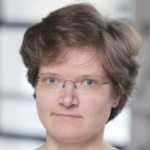 Marta Zagorowska is a research associate at Imperial College London, where she focuses on control and optimisation of systems. Her research topic is focused on control algorithms taking account of the state of the equipment. After completing her PhD she joined the group of Dr Eric Kerrigan at the Department of Electrical and Electronic Engineering to work on control and optimisation.
Marta Zagorowska is a research associate at Imperial College London, where she focuses on control and optimisation of systems. Her research topic is focused on control algorithms taking account of the state of the equipment. After completing her PhD she joined the group of Dr Eric Kerrigan at the Department of Electrical and Electronic Engineering to work on control and optimisation.
Professor Nilay Shah
Co-Investigator
Imperial College London
 Professor Nilay Shah is the Head of the Department of Chemical Engineering at Imperial College London. He has co-authored over 200 technical papers on process systems modelling and engineering, design and optimisation of built environment systems, sustainable energy systems, supply chain modelling, process scheduling and optimisation and plant safety and risk assessment.
Professor Nilay Shah is the Head of the Department of Chemical Engineering at Imperial College London. He has co-authored over 200 technical papers on process systems modelling and engineering, design and optimisation of built environment systems, sustainable energy systems, supply chain modelling, process scheduling and optimisation and plant safety and risk assessment.
Dr Eric Kerrigan
Co-Investigator
Imperial College London
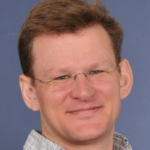 Dr Kerrigan is a seasoned academic at Imperial College London in the field of control systems. His research is in the design of efficient numerical methods and computer architectures for solving optimal control problems in real-time. He chairs the IFAC Technical Committee on Optimal Control, and is an editor for several journals. He is Co-I on WP5 of the Active Building Centre Research Programme.
Dr Kerrigan is a seasoned academic at Imperial College London in the field of control systems. His research is in the design of efficient numerical methods and computer architectures for solving optimal control problems in real-time. He chairs the IFAC Technical Committee on Optimal Control, and is an editor for several journals. He is Co-I on WP5 of the Active Building Centre Research Programme.
Dr Damian Giaouris
Co-Investigator
Newcastle University
 Dr Giaouris is a Reader on the Control of Energy Systems at Newcastle University. His interests and focus for the Active Building Centre Research Programme includes power systems, energy storage, control systems, smart grids, electric vehicles and nonlinear dynamics of electrical systems. He is a proficient author and journal editor, with over 150 publications to date.
Dr Giaouris is a Reader on the Control of Energy Systems at Newcastle University. His interests and focus for the Active Building Centre Research Programme includes power systems, energy storage, control systems, smart grids, electric vehicles and nonlinear dynamics of electrical systems. He is a proficient author and journal editor, with over 150 publications to date.
Dr Edward O’Dwyer
Researcher
Imperial College London
 Dr O’Dwyer’s research focus is on control engineering of urban and building energy systems. He joins the Active Building Centre Research Programme contributing primarily in data science, machine learning, and model predictive control of urban energy systems.
Dr O’Dwyer’s research focus is on control engineering of urban and building energy systems. He joins the Active Building Centre Research Programme contributing primarily in data science, machine learning, and model predictive control of urban energy systems.
Dr Paola Falugi
Researcher
Imperial College London
 Dr Falugi has extensive research experience in modelled predictive control and energy network planning. Her current contributions to the Active Building Centre Research Programme focus on the development of analytical and computational methods for evaluating the economic and environmental benefits of storage technologies to enhance the efficiency of the electricity network.
Dr Falugi has extensive research experience in modelled predictive control and energy network planning. Her current contributions to the Active Building Centre Research Programme focus on the development of analytical and computational methods for evaluating the economic and environmental benefits of storage technologies to enhance the efficiency of the electricity network.
Professor Yulong Ding
Thermal Storage Lead
University of Birmingham
 Professor Yulong Ding’s current research covers both fundamental (multiphase transport phenomena across length scales) and applied (new energy conversion and storage technologies) aspects. He is the founding Chamberlain Chair of Chemical Engineering at the University of Birmingham and director of Birmingham Centre for Energy Storage.
Professor Yulong Ding’s current research covers both fundamental (multiphase transport phenomena across length scales) and applied (new energy conversion and storage technologies) aspects. He is the founding Chamberlain Chair of Chemical Engineering at the University of Birmingham and director of Birmingham Centre for Energy Storage.
He has research interests in energy materials and energy processes and currently focusing on developing novel technologies for electrical and thermal energy storage at different scales. He has been a PI or Co-I of research projects with over £20M funding over the past 10 years.
Dr Mohamed Fadl
Researcher
Loughborough University
 Mohamed is a seasoned academic, focussing on heat flows using CFD and thermal energy storage. His current and recent research in energy/thermofluids focus on the development of sustainable energy solutions for generation, storage and distribution of energy, such as developing a new alternative heating method and manufacture an efficient heating system to decrease the consuming power and focused on creating solutions that transform the future for the benefit of people and their environments.
Mohamed is a seasoned academic, focussing on heat flows using CFD and thermal energy storage. His current and recent research in energy/thermofluids focus on the development of sustainable energy solutions for generation, storage and distribution of energy, such as developing a new alternative heating method and manufacture an efficient heating system to decrease the consuming power and focused on creating solutions that transform the future for the benefit of people and their environments.
His research initiatives include both experimental and computational investigations of heat transfer, thermodynamics and fluid dynamics and topics addressing fundamental issues in the energy system technologies, electronics thermal management, manufacturing processes to fundamental research in thermal energy transport.
Noah Godfrey
Researcher
University of Birmingham
 Noah is a PhD student at the University of Birmingham and a Research Assistant on the Active Building Centre Research Programme, modelling flexibility in the UK energy market. Holding a MEng in Chemical Engineering, Noah’s interests include renewables and their integration within the energy network, and how data analysis can optimise their uptake across all sectors.
Noah is a PhD student at the University of Birmingham and a Research Assistant on the Active Building Centre Research Programme, modelling flexibility in the UK energy market. Holding a MEng in Chemical Engineering, Noah’s interests include renewables and their integration within the energy network, and how data analysis can optimise their uptake across all sectors.
Dr Grant Wilson
Co-Investigator
University of Birmingham
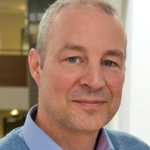 Dr Grant Wilson is a Lecturer in Chemical Engineering at the University of Birmingham with research interests in multi-vector, multi-scale data analytics, and a particular focus on the comparison of energy vectors over similar timeframes. He is focussed on the decarbonisation of heat as a significant challenge for Great Britain given its current use of natural gas to provide the majority of its heat demand.
Dr Grant Wilson is a Lecturer in Chemical Engineering at the University of Birmingham with research interests in multi-vector, multi-scale data analytics, and a particular focus on the comparison of energy vectors over similar timeframes. He is focussed on the decarbonisation of heat as a significant challenge for Great Britain given its current use of natural gas to provide the majority of its heat demand.


